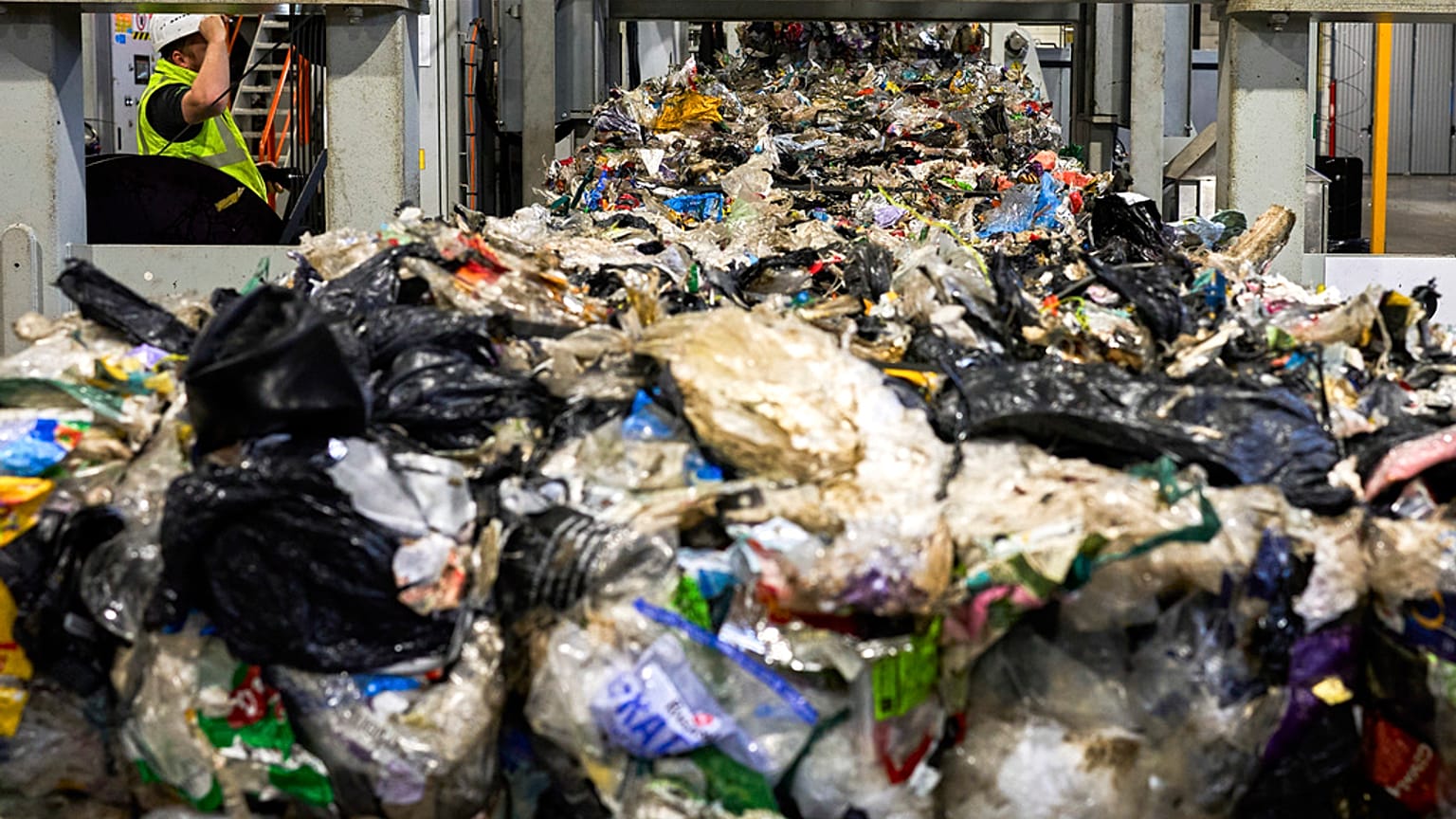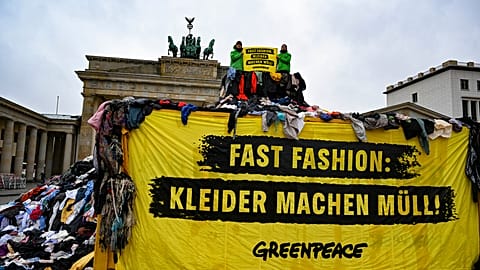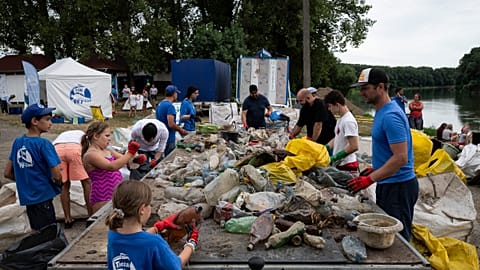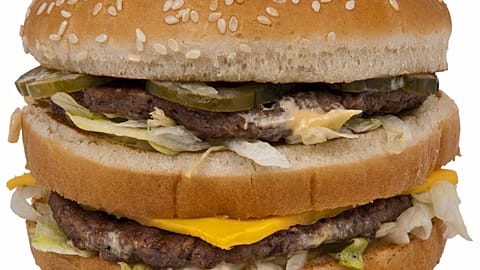While lawmakers have balked at a total ban on disposable wrappers and cartons in fast-food restaurants, a range of familiar litter should soon be consigned to the dustbin of history under an agreement they hope will reverse the surging generation of packaging waste across the EU.
Fast-food restaurants will no longer be able to serve food and drink in-house in throwaway plastic wrappers and cups, but lawmakers have agreed after months of negotiation that the use of paper and other materials can continue, significantly watering down a European Commission proposal for a total ban.
The restriction is part of a new Packaging and Packaging Waste Regulation (PPWR), agreed in back-room talks between MEPs and government negotiators on Monday (4 March) evening, which sets a concrete target for a 5% cut by 2030 in the annual volume of packaging waste generated in the EU, currently around 190kg per citizen.
The reduction target rises to 10% in 2035 and 15% in 2040. To help meet these legally binding limits, the legislation addresses the excessive use of packaging materials, for example limiting to 50% the amount of empty space in boxes used for transport and e-commerce deliveries.
The take-away food sector is also targeted. From 2030, sandwich bars, kebab shops, pizzerias and all such businesses will have to offer re-usable packaging for at least 10% of their products, as well as allowing customers to bring their own containers if they want to, with no penalty.
The rules should put an end to the use of lightweight plastic bags, for example in fruit and vegetable markets. And the hotel, restaurant and catering (Horeca) sector faces a range of further restrictions: plastic sachets of ketchup and coffee creamer should be a thing of the past by 2030.
Tourists and business travellers will notice a difference by that date, too, with the regulation outlawing the mini bottles of shampoo and lotions laid on in most hotels, while the shrink-wrapping of suitcases at airports will also be banned.
Governments must ensure the separate collection of at least 90% of plastic bottles and metal drinks containers by 2029, and put in place mandatory deposit-return systems (DRS). There are exemptions, however: countries that have already achieved this collection rate, or reach 80% by 2026 and have a plan in place to meet the ultimate target, are exempt from the DRS requirement.
The PPWR, which reinforces an earlier EU directive of the same name, has been the subject of intense lobbying since it was proposed in November 2022, with different industrial sectors jostling for position in what they feared would be a shrunken market.
The Confederation of European Paper Industries (Cepi) appeared satisfied as news of the political agreement broke that it had beaten plastics manufacturers in the battle for market share. “The PPWR debate has now brought forth the idea that circularity and the phase out of fossil-based materials are desirable features of the EU’s economy,” director general Jori Ringman told Euronews.
But Sergio Baffoni, a campaigner with the Environmental Paper Network, slammed what he saw as a victory for lobbyists in Brussels. “McDonalds and the paper packaging industry managed to distort and empty a regulation born to reduce single-use packaging, which now is promoting it, at the cost of the global forests and climate,” he said.
Still, environmental groups and anti-waste campaigners took some comfort in what they saw as a step towards reversing the dramatic growth in packaging waste seen in recent years, even if they were highly critical of the number of exemptions and outright deletions made to the commission’s original proposal.
Dorota Napierska of the campaign group Zero Waste Europe welcomed the political agreement to ban the use of PFAS, so-called forever chemicals that accumulate in the environment and living tissues, in food packaging. “This means recognising the urgency of phasing out PFAS from food packaging and prioritising consumers’ health,” she said. “This will hopefully also send a clear message to food packaging manufacturers that all other substances of concern that we currently find in food packaging should also be eliminated in the coming years.”
But Napierska and her colleagues said they were unsettled by the apparent “free ride” given to lobbyists for the paper industry and a “dizzying amount of regulatory loopholes” introduced during the negotiations.
Valeria Botta of the Environmental Coalition on Standards suggested that requirements for reusable packaging did not go far enough. “The reality is that growing unnecessary packaging and overpackaging is a waste of resources – and recycling alone is just not enough,” Botta said.
The centre-right EPP group’s environment policy coordinator Peter Liese welcomed a “pragmatic compromise” that incorporated what he described as uncontroversial aspects of the PPWR proposal, such as a requirement that all packaging should be designed for recyclability, and mandatory recycled content targets for plastics used in packaging.
"I am particularly pleased that the ban on very small paper packaging such as sugar sachets and similarly over-detailed rules from the pen of former Commissioner Frans Timmermans are off the table,” Liese said in a statement on his website, naming the erstwhile director of the EU Green Deal.
Liese also approved the decision to give equal weight to recycling and reuse, although the ‘waste hierarchy’ referenced in existing EU law implies that prevention should take precedence. “After all, reusable does not automatically have to be the best for the environment,” Liese said, echoing an argument hammered home by lobbyists over the past year and more.
The political agreement, brokered in large part by Belgium as current holder of the EU Council presidency, means the new packaging waste law can be formally adopted before the European Parliament disbands for European elections in June.


















